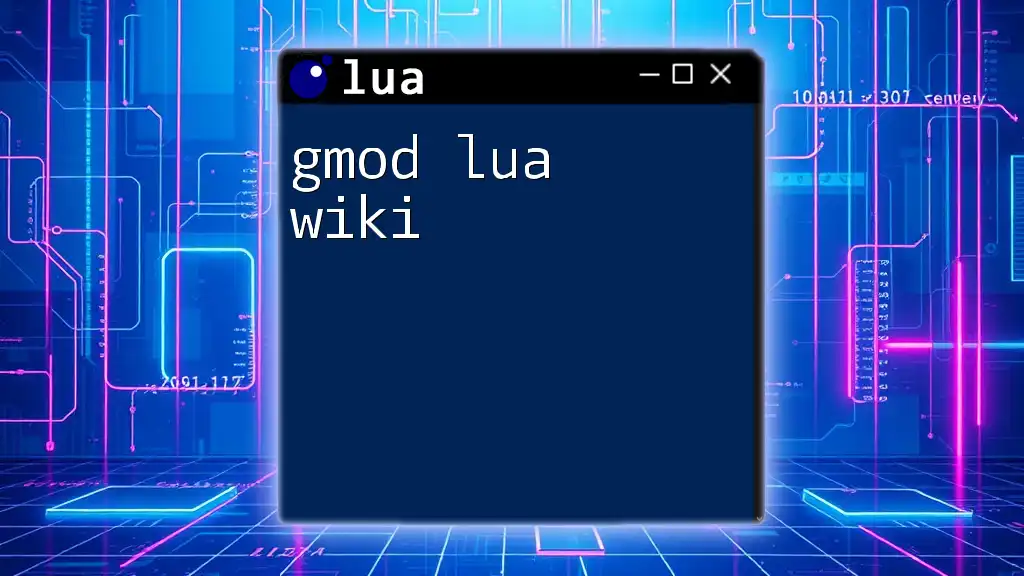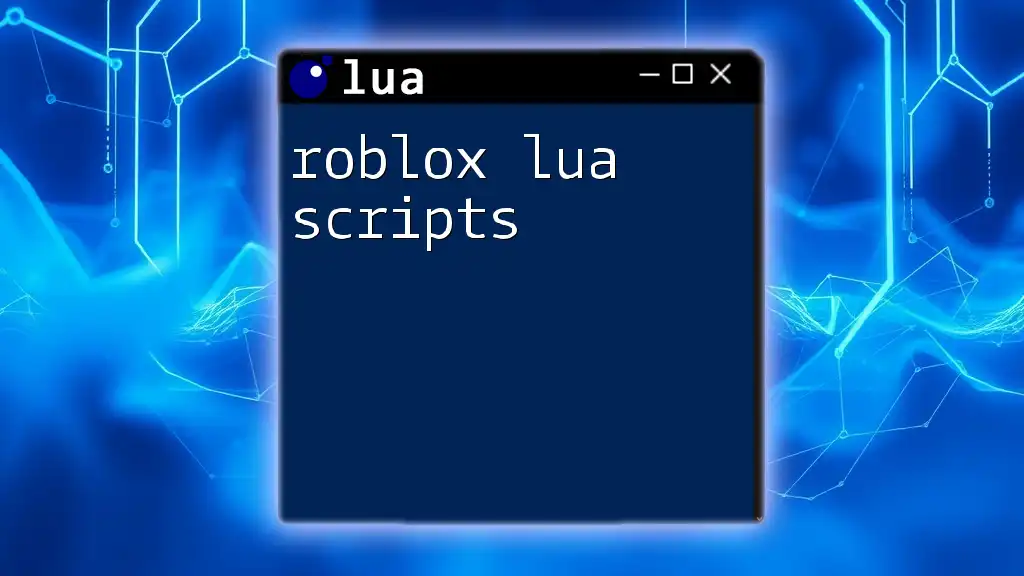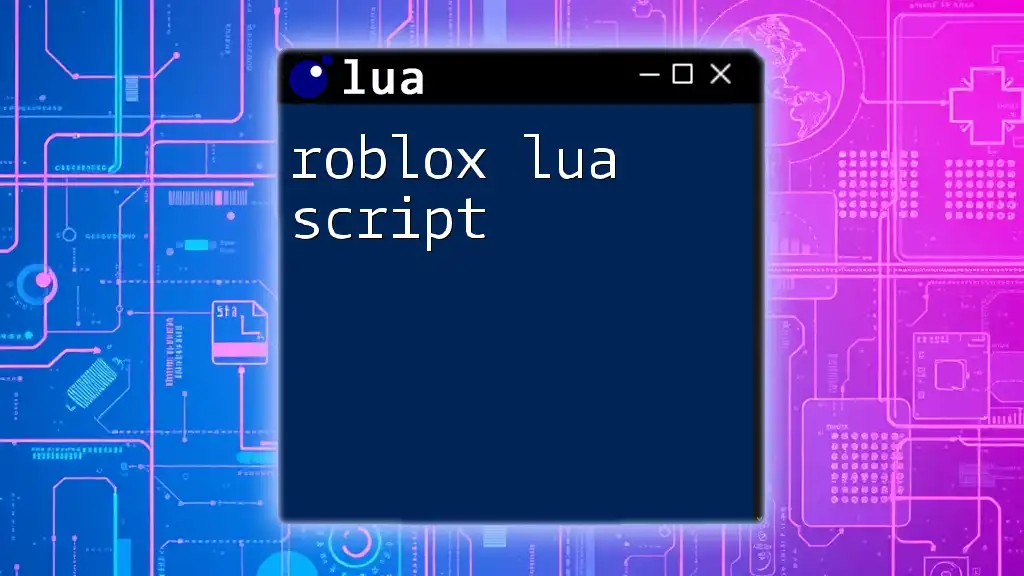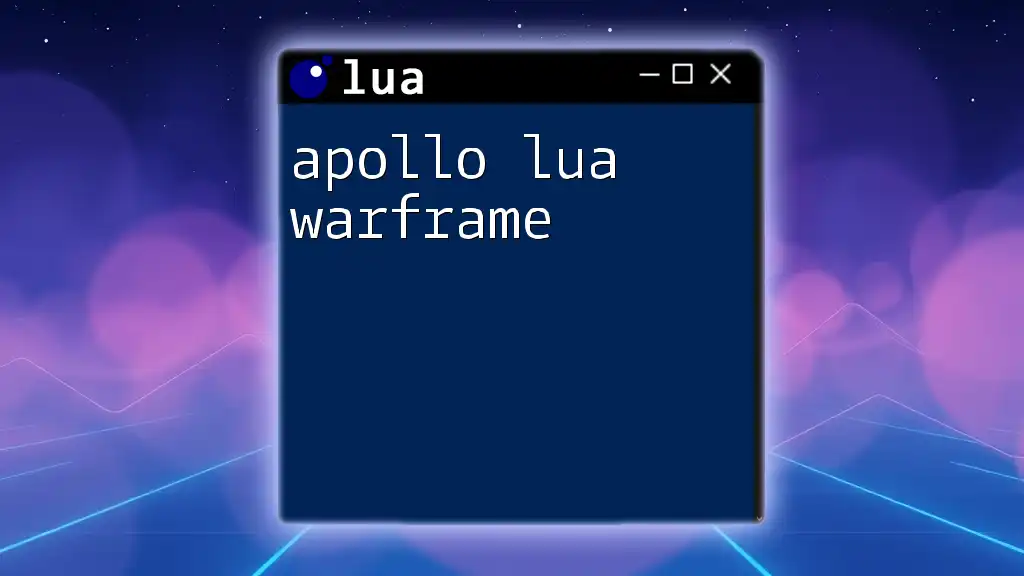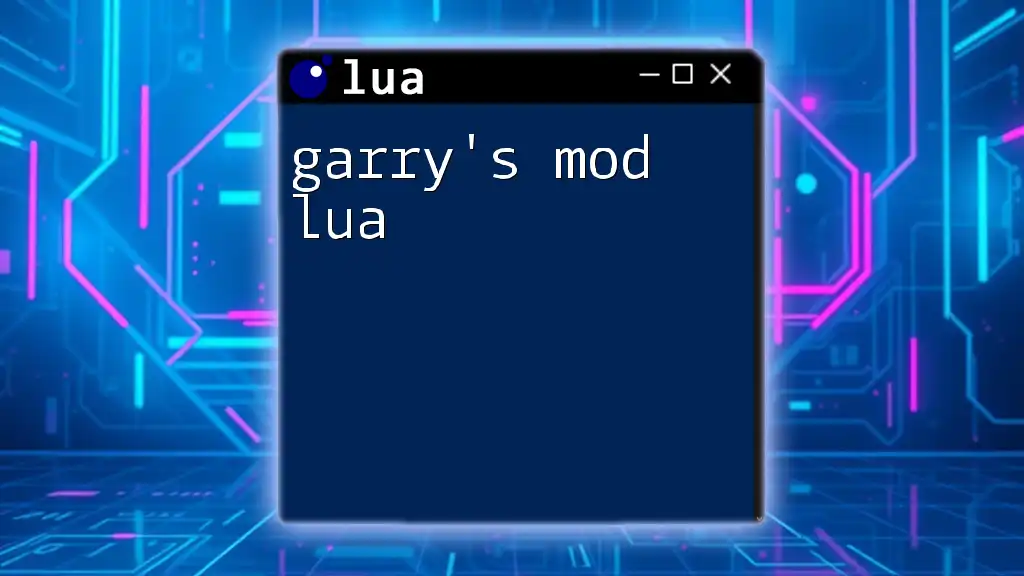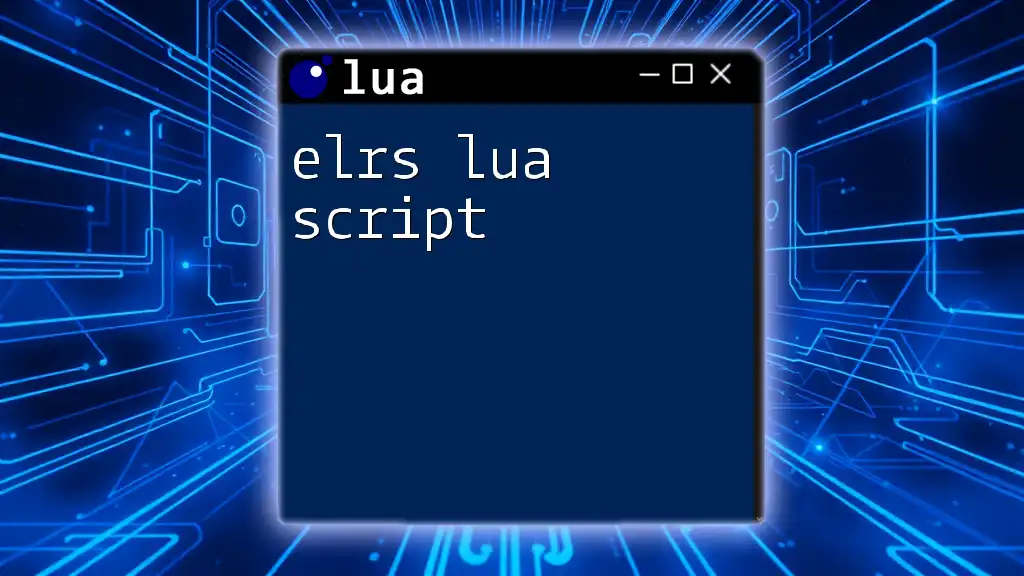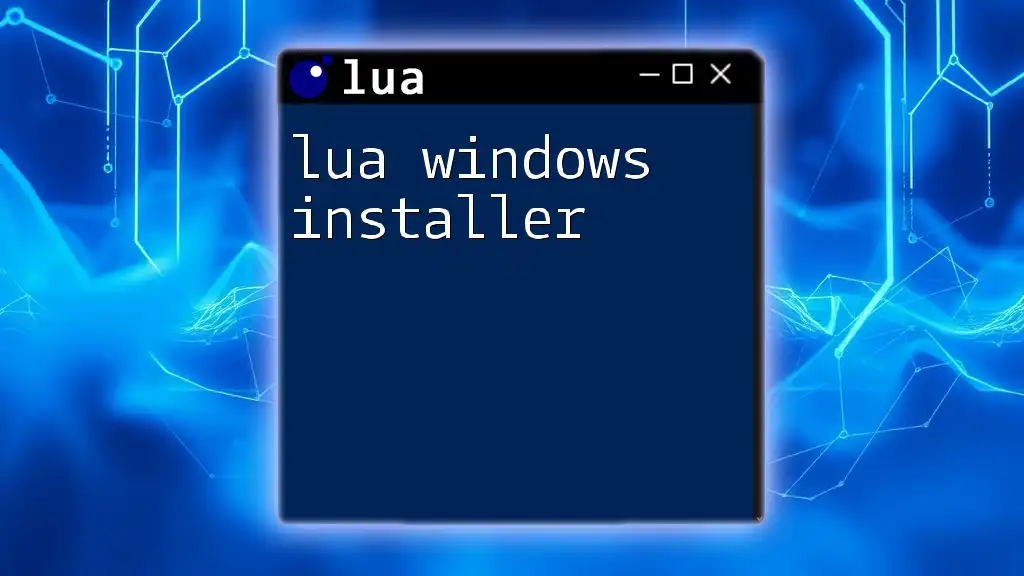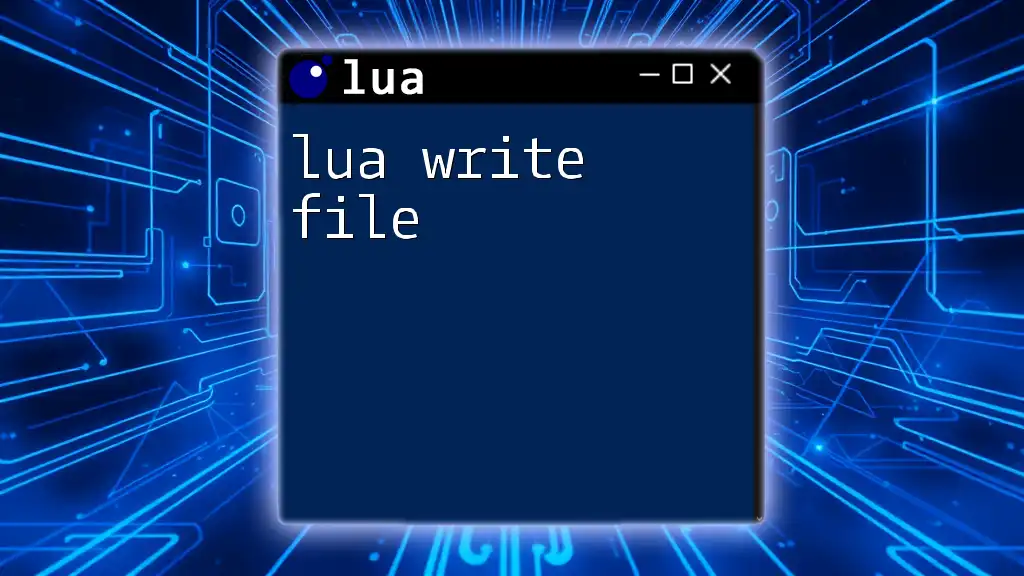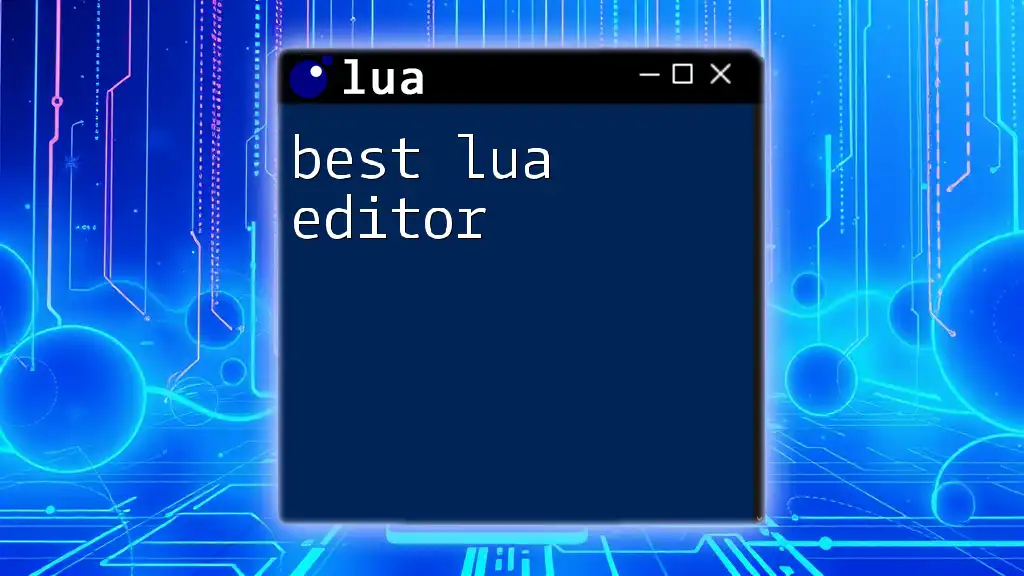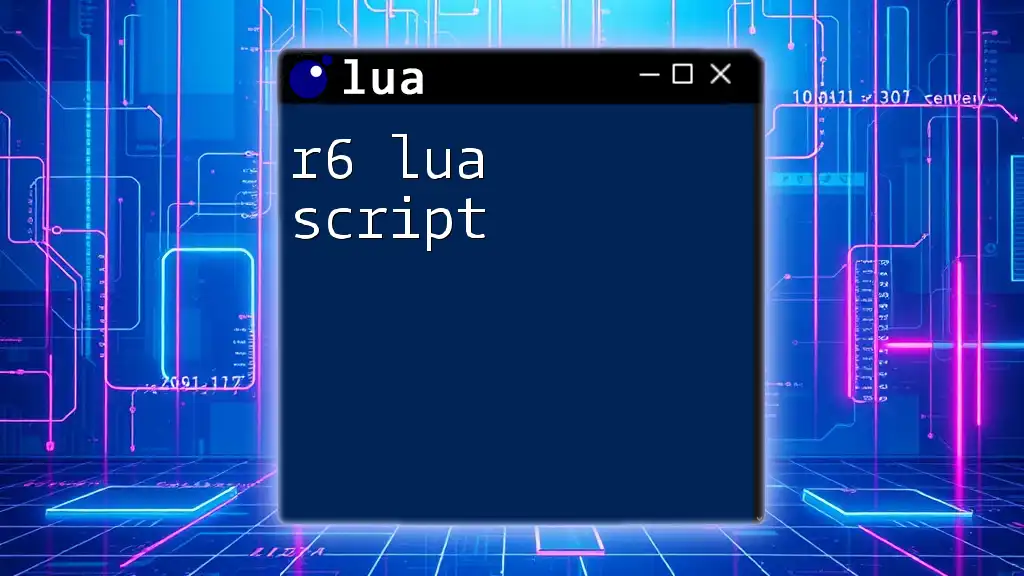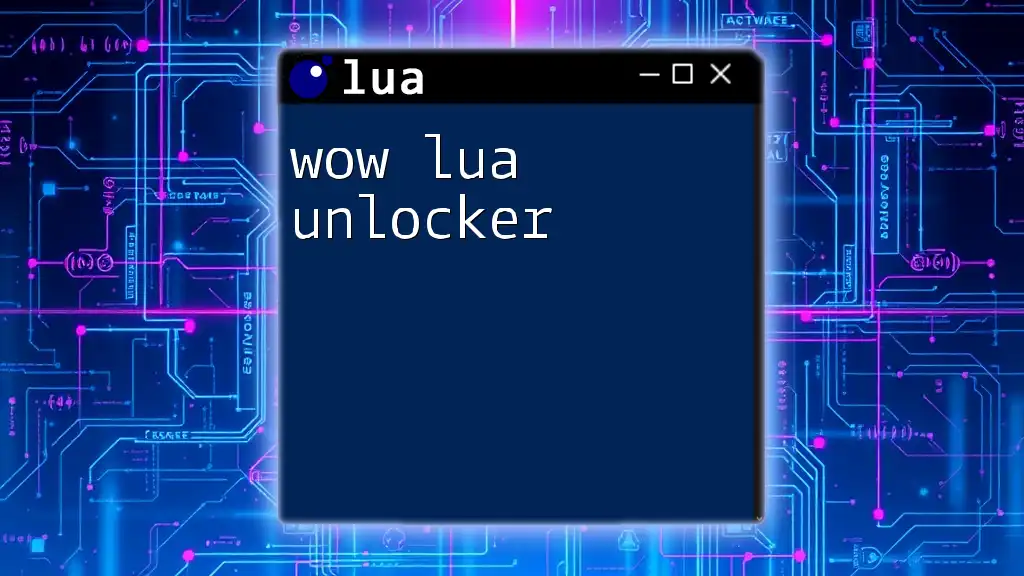The GMod Lua Wiki is an essential resource for learning and mastering Lua scripting in Garry's Mod, providing comprehensive documentation and examples for users.
Here's a simple code snippet to create a basic entity in Garry's Mod:
-- Create a simple entity in Garry's Mod
DEFINE_BASECLASS("base_gmodentity")
ENT.Base = "base_gmodentity"
ENT.Type = "anim"
ENT.PrintName = "My Custom Entity"
function ENT:Initialize()
self:SetModel("models/props_c17/oildrum001.mdl")
end
function ENT:Use(activator, caller)
activator:ChatPrint("You have interacted with the custom entity!")
end
scripted_ents.Register(ENT, "my_custom_entity")
Understanding Lua in Garry's Mod
What is Lua?
Lua is a lightweight scripting language designed for embedding in applications. Its quick performance and ease of use have made it a popular choice in the gaming world, especially within Garry's Mod (GMod). Lua's flexibility allows developers to modify game mechanics, create custom content, and significantly enhance gameplay experiences. Thanks to its straightforward syntax, even those who are new to programming can dive in and start creating.
Getting Started with GMod Lua
To access the Lua interface in GMod, players typically use the in-game console. You can open this console by pressing the `~` key (tilde) on your keyboard. Here’s a simple command to get you started:
print("Hello, GMod!")
This line of code will simply print out "Hello, GMod!" in your console, serving as an easy introduction to Lua scripting in the game.
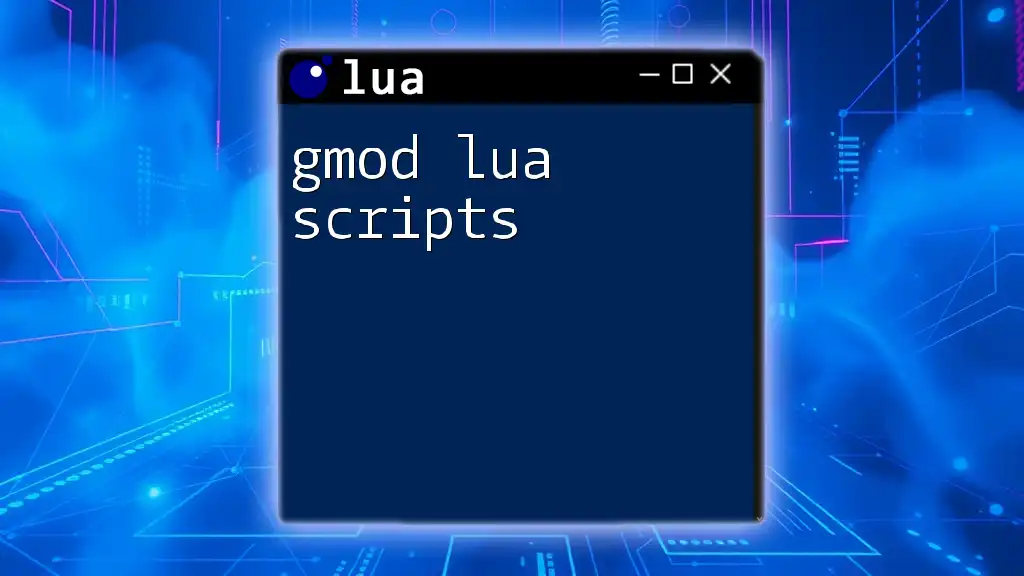
Exploring the GMod Lua Wiki
Key Features of the GMod Lua Wiki
The GMod Lua Wiki is an extensive repository of documentation covering the vast functionalities of Lua scripting in GMod. It provides users with detailed information on:
- Functions, events, and hooks available in GMod.
- User-contributed content that continually expands its resources.
- Entries divided into categories, allowing for easier navigation.
Popular entries often include detailed explanations of core functions such as `Ent:GetOwner()` and `hook.Add()`, which are crucial for creating scripts that interact seamlessly with game objects and events.
Navigation Tips
Efficiently navigating the GMod Lua Wiki can improve your scripting experience drastically. Here are a few pointers:
- Search Bar: Utilize specific keywords related to your query. For example, searching for "spawn" will yield results relevant to spawning entities.
- Categories and Tags: Familiarize yourself with how content is categorized. Delving into specific tags like "entities" or "hooks" can help streamline your research process.
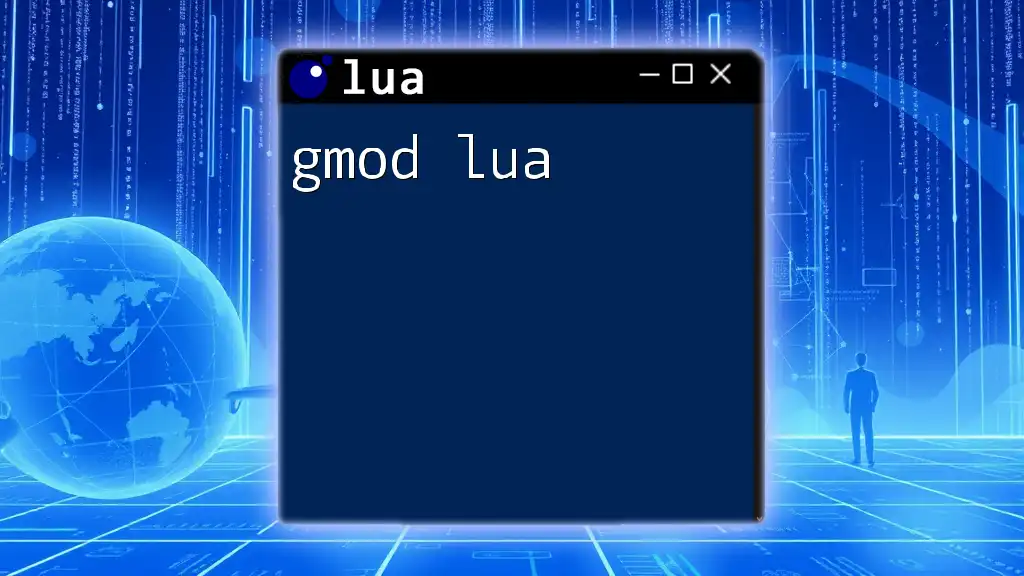
Getting Comfortable with Lua Commands
Basic Lua Commands
Every GMod scripter should become familiar with a few fundamental commands that serve as the building blocks of scripting. For instance, the `print()` command is invaluable for debugging and confirming your code runs correctly. Here’s how it works:
print("This prints text to the console")
This command outputs text to the console, allowing you to see what’s happening internally.
Intermediate Lua Commands
Once you're comfortable with the basics, it’s time to tackle some intermediate commands. A commonly used command is `hook.Add()`, which lets you execute a function in response to specific game events. Here's an example:
hook.Add("PlayerSay", "MyChatCommand", function(ply, text)
if string.lower(text) == "!hello" then
return "Hello, " .. ply:GetName() .. "!"
end
end)
In this code, we listen for when a player sends a chat message. If the message is `!hello`, it responds with a friendly greeting containing the player's name.
Advanced Lua Commands
For seasoned players looking to develop more complex features, understanding advanced commands can unlock new capabilities. Suppose you want to create a custom entity (a new object within the game). Here’s a basic example:
DEFINE_BASECLASS("base_gmodentity")
ENT.Base = "base_gmodentity"
ENT.Type = "anim"
ENT.PrintName = "Custom Entity"
ENT.Author = "YourName"
ENT.Spawnable = true
function ENT:Initialize()
self:SetModel("models/props_c17/oildrum001.mdl")
end
This script initializes a new playable entity with a specific model. Once defined, you can spawn it in-game, further enhancing your gameplay experience.
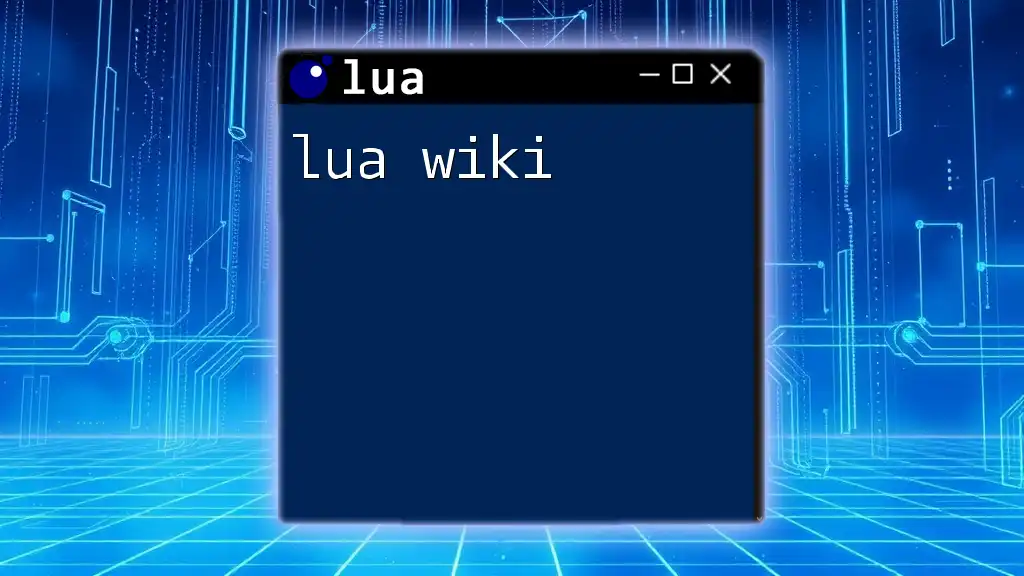
Creating Your First Script
Setting Up a Development Environment
Before diving deeper into scripting, it’s essential to set up a development environment. Spend time setting up Text Editor tools like Visual Studio Code or Sublime Text, which offer syntax highlighting and snippets for Lua that will help you write cleaner code.
Additionally, always utilize GMod’s built-in testing features to run your scripts and check for errors. This can save time and help you refine your coding technique over time.
Step-by-Step: Writing a Simple Script
Let’s walk through creating a simple script that spawns a specific object in the game world. Here’s how you can do it:
- Open your Lua editor and create a new file.
- Write the following script:
hook.Add("OnEntityCreated", "SpawnMyEntity", function(ent)
if ent:IsPlayer() then
local myEntity = ents.Create("prop_physics")
myEntity:SetModel("models/props_c17/oildrum001.mdl")
myEntity:SetPos(ent:GetPos() + Vector(0, 0, 50)) -- Spawns it above the player
myEntity:Spawn()
end
end)
This script will spawn a specific model (an oil drum) above the player each time they create an entity. To run the script, save it in your GMod Lua folder and activate it using the Lua console.
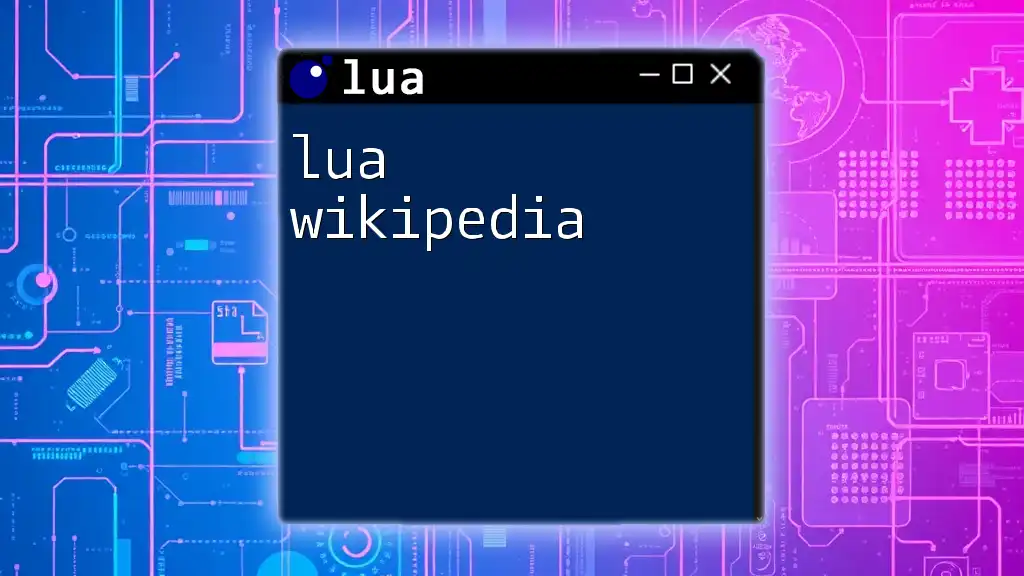
Debugging Your Lua Scripts
Common Issues and Solutions
Every programmer encounters challenges. Understanding common issues, like missing semicolons or mistyped variable names, is crucial. When errors occur, Lua provides feedback in the console, letting you know the line number and nature of the error.
Tools for Debugging
In addition to console messages, effective debugging can be achieved through tools like:
- print statements: Use them liberally to track code progress.
- Debug libraries: Consider using additional libraries that provide enhanced debugging tools.
For example, a simple implementation with `print` might look like this when modifying your script:
print("Spawning the entity now...")
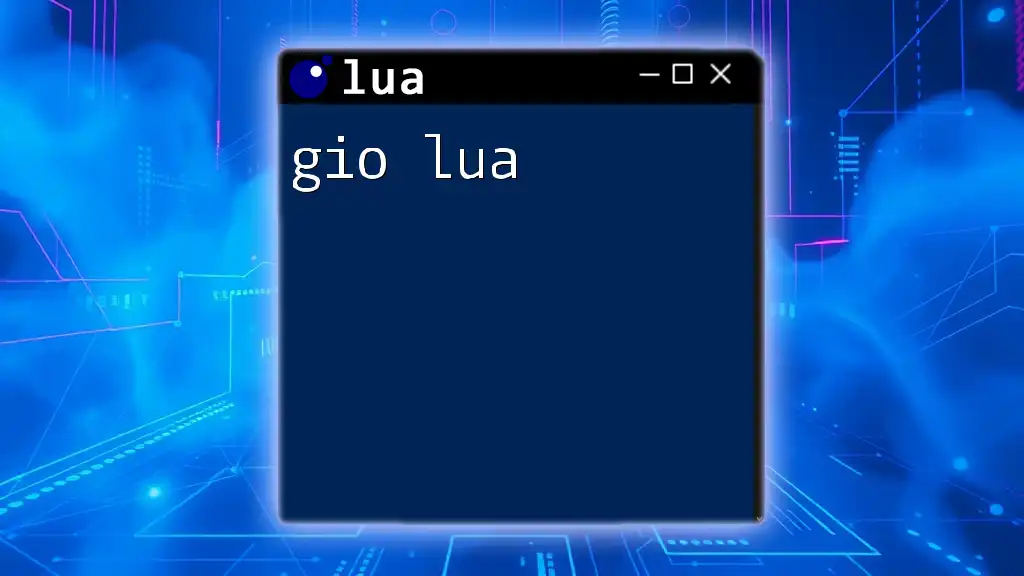
Best Practices for Scripting in GMod
Writing Clean and Efficient Code
While focusing on functionality is primary, writing clean code is equally important. Here are some best practices to keep in mind:
- Comment liberally: Explain what each section of your code does, making it easier for others (and yourself) to understand later.
- Variable Naming: Use clear and concise names for your variables to enhance readability.
Collaborating with the Community
Garry's Mod has a vibrant community contributing to Lua scripting. Engage in forums, share your scripts, and seek feedback. Participating in discussions can spark new ideas and improve your scripting skills.
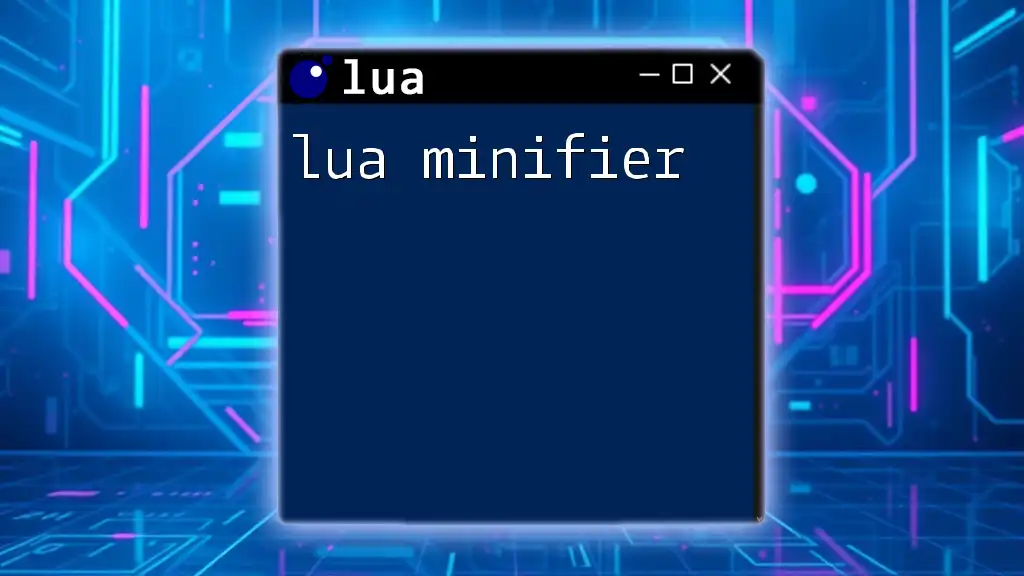
Resources for Further Learning
Additional Online Resources
Beyond the GMod Lua Wiki, there are numerous online platforms where you can expand your knowledge:
- YouTube tutorials: Visual guidance can often illuminate concepts that text cannot.
- Lua forums: Interact with other Lua developers who can provide assistance and insight.
Books and Documentation
Aspiring coders should explore even more structured resources like Lua programming books or the official Lua documentation to solidify their foundation and enhance their skills.
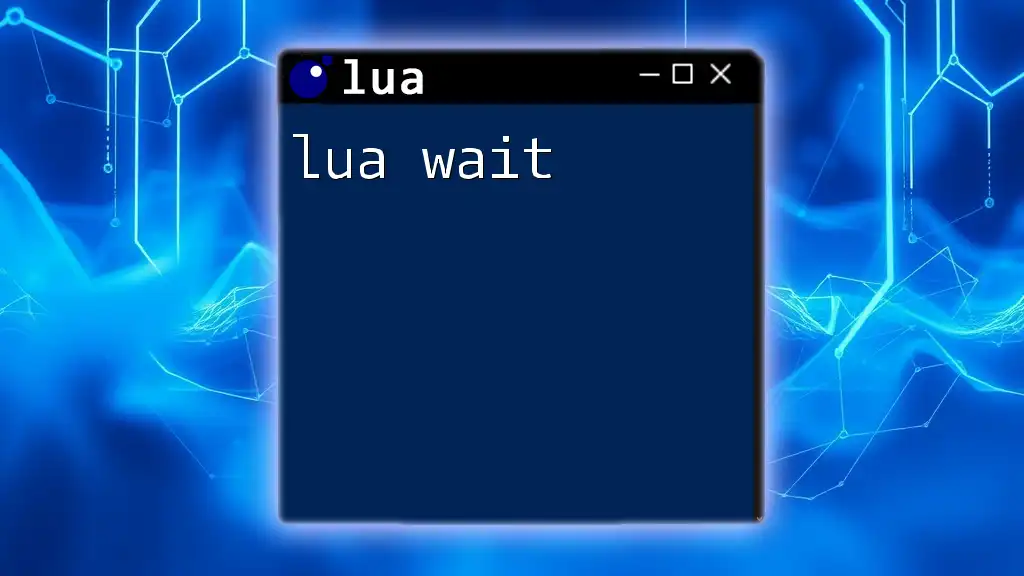
Conclusion
In your journey into Lua scripting within GMod, the GMod Lua Wiki serves as an invaluable resource. From beginner commands to complex scripts, this guide has equipped you with the knowledge and tools required for creating captivating modifications. Dive deeper into this world, practice consistently, and become a member of the enthusiastic community that breathes creativity into Garry’s Mod.
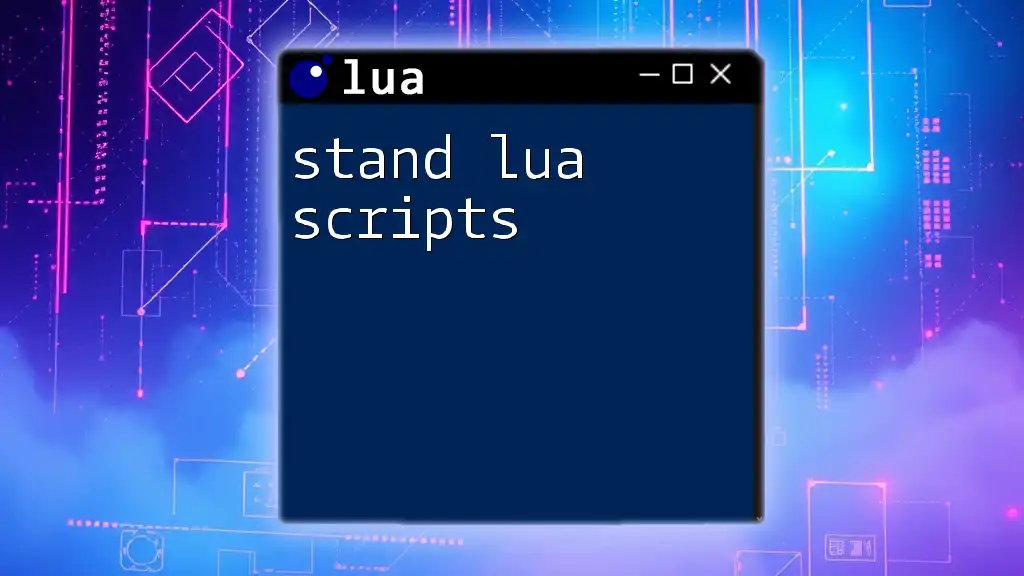
Call to Action
What will you create with your newfound Lua knowledge? Share your scripts, tips, and experiences within the GMod community and keep learning!

